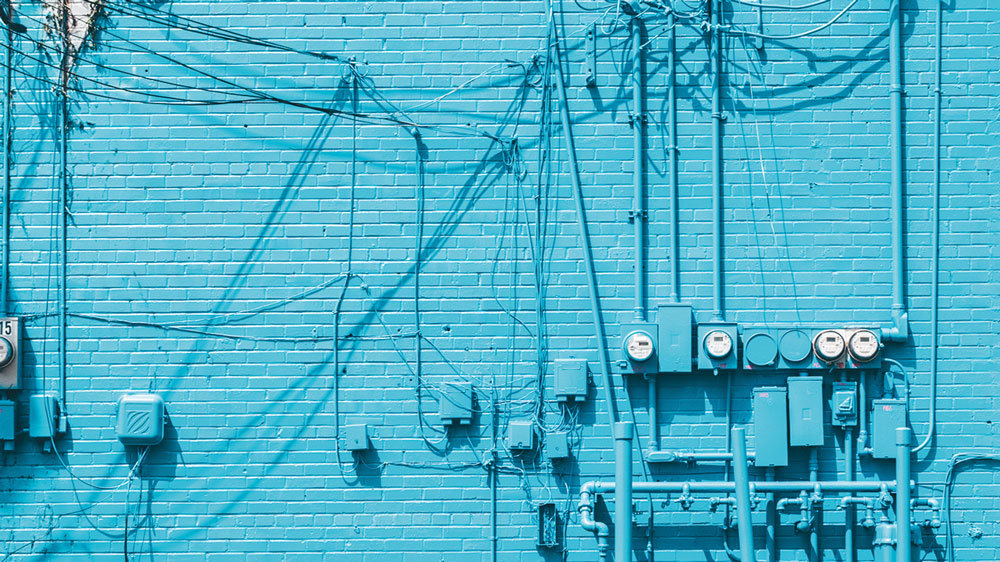Electricity tariffs
Romania vs. the EU
Electricity tariffs for household consumers in Romania are some of the lowest in the European Union, according to Eurostat statistics. Last year, with a price of EUR 119.8/MWh, below Romania were Hungary with EUR 112.5/MWh, Croatia with EUR 119.6/MWh, Lithuania with EUR 111.6/MWh and Bulgaria with EUR 95.5/MWh. But if we relate these prices to the minimum net wage, we find that Romania pays the most expensive electricity. Even Bulgarians, who have a minimum net wage of only EUR 202/month, can afford to pay 2.11 MWh, while Romanians, with a minimum net wage of EUR 251/month, can pay only 2 MWh. At the same time, taxes charged by the state are at the European average, which proves that we have an expensive electricity.
The Netherlands is the EU country with the cheapest electricity. At a cost of EUR 156.2/MWh and a minimum net wage of EUR 1,430, the Dutch can afford to pay 9.15 MWh per month. The top of countries with the cheapest energy also includes France, where a minimum net wage of EUR 1,401 can cover 8.3 MWh, the UK where a minimum net income of EUR 1,261 covers 7.14 MWh and Luxembourg, when one can pay 7.2 MWh with EUR 1,162. The first line of the top is completed by the Irish, who can afford to consume 6.5 MWh.
The example of ex-communist countries
In 2017, in Romania, the energy price for household consumers was EUR 119.8/MWh. Although this is among the lowest prices compared to the former communist countries, Romanians can afford to pay the lowest amount of energy from the minimum net wage. Estonia and Slovenia are in a favourable situation with 3.99 MWh paid, followed by Croatia with 3.1 MWh, the Czech Republic with 2.8 MWh and Poland with 2.4 MWh. The penultimate position among the ex-communist countries is occupied by the Bulgarian neighbours, who can afford to pay 2.11 MWh, while for Romanians the maximum bill they can afford to pay is only 2 MWh.
State taxes are not high
While until a few years ago Romania was in a select top of countries with the highest taxes and duties applied to electricity, along with countries like Germany, Sweden or Denmark, at the level of last year they accounted for only 16.02% of the final price. For example, in countries such as Bulgaria and Hungary, which registered (in 2017) prices for household consumers lower than the price charged in Romania, the state’s share accounts for 16.64% and 21.245% respectively of the final price. Also, in Slovakia taxes account for 16.65%, in the Czech Republic – 17.38%, in Slovenia – 18.02% and in Poland – 18.66%. A different situation is recorded in Estonia, where taxes account for 10.93% and the final price is EUR 120.7/MWh, higher than in our country.
Constant price increases
As a characteristic, in Romania the price of energy for household consumers has permanently increased over the past few years, while many EU countries have recorded reductions. In early 2012, the price for household consumers was in our country RON 107.5/MWh, and in early 2017 it reached EUR 119.8/MWh, marking an increase by 10%. While in Bulgaria the tariff remained unchanged in this entire period (EUR 95.5/MWh), in Poland it fell from EUR 152.9 to EUR 145.7/MWh, and in the Czech Republic from EUR 166.8 to EUR 143.8/MWh, in Hungary from EUR 161.8 to EUR 112.5/MWh and the examples can continue.
| Countries with the highest/lowest share of taxes in the final price | ||
| Country | Price (EUR/MWh) | Taxes (%) |
| Hungary | 112.5 | 21.24 |
| Austria | 195.5 | 21 |
| Sweden | 193.6 | 20.04 |
| Denmark | 304.9 | 20 |
| Germany | 304.8 | 19.28 |
| Estonia | 120.7 | 10.93 |
| Luxembourg | 161.5 | 7.61 |
| UK | 176.6 | 4.81% |
| Source: Eurostat | ||



